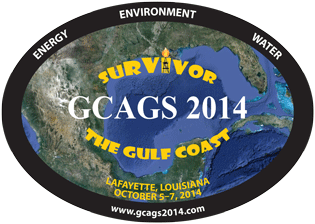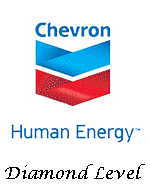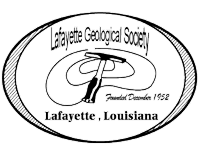Course #1: Imperial Barrel Award Competition Training (Students Only)
(Sponsored by Shell)
Instructors: Dr. Steven Bloemendaal and Dr. Larry Garmezy,
Global Geological Advisors/Prospect Maturation Experts, Shell Exploration and Production Co.
• Saturday, Oct. 4
• 8:00 am–5:00 pm
• Location: Zydeco Room
• $25 per student (cost includes refreshments, lunch, and all course materials)
• Max. 25 students (open to students only)
This one-day short course is designed to introduce the participant to the fundamentals of basin analysis, the evaluation of petroleum systems, and quantitative prospect assessment (risk and volumes). Following brief lectures, the students will work in teams to evaluate, delineate, and describe the critical elements of a working hydrocarbon province. You will learn about the variety of maps you need to produce for an evaluation, how to build play element maps on a specific reservoir interval, summary play maps that describe how the “play” works, and where the sweet-spots are located. These products are the foundation of all successful hydrocarbon evaluations. This is followed by a hands-on suite of exercises which emphasize practical, simple principles for carrying out a quantitative prospect assessment. Lunch will be provided.
Course #2: Risk Evaluation and Corrective Action Program (RECAP)
(Sponsored by Aquila, LLC, Baker Hughes, Diversified Well Logging,
FairfieldNodal, and Shoreline Energy)
Instructor: Dr. June Sutherlin, Toxicologist, Louisiana Department of Environmental Quality
(CANCELED)
• Saturday, Oct. 4
• 8:00 am–5:00 pm
• Location: Cajun Room
• $100 per person or $25 for students (limited to 5 students at the discounted price; subsequent student registrants will be waitlisted) (cost includes refreshments, lunch, and all course materials)
• Max. 30 participants
The Risk Evaluation Corrective Action Program course will provide the regulated community, consultants, educators, and government employees a detailed overview of the regulations that set forth the procedures, approaches to, and calculations for managing exposure risk at contaminated sites. The class will explain the concepts behind the Screening Option and Management Option 1 and will expand on these concepts and delve into site specific calculations for MO–2, MO–3, toxicity, and ecological risk. The most recent revisions to RECAP (2014) will be discussed either as proposed or promulgated.
Course #3: Seismic Amplitude Interpretation
(Sponsored by Aquila, LLC, Baker Hughes, Diversified Well Logging,
FairfieldNodal, and Shoreline Energy)
Instructor: Dr. Fred Hilterman, Chief Scientist, Geokinetics, and Distinguished Research Professor, Univ. of Houston
• Sunday, Oct. 5
• 8:00 am–4:00 pm
• Location: Zydeco Room
• $150 per person or $25 for students (limited to 5 students at the discounted price; subsequent student registrants will be waitlisted) (cost includes refreshments, lunch, and all course materials)
• Max. 30 participants
This course is intended for geologists, geophysicists, and engineers who integrate and/or interpret seismic data as part of their workflow to characterize a reservoir. In particular, the course will assist geoscientists who need to identify a reservoir’s lithology, pore-fluid, and net-to-gross using seismic amplitude. Upon course completion, participants should be able to select the appropriate techniques for pore-fluid and lithology prediction from seismic data. As a metric to the success of the learning objectives, a checklist for a reservoir-characterization study will be presented to the participants for evaluation and future application.
Course #4: Introduction to Reservoir Fluid PVT Analysis for Geologists
(Sponsored by Aquila, LLC, Baker Hughes, Diversified Well Logging,
FairfieldNodal, and Shoreline Energy)
Instructor: Toddy Guidry, Senior Technical Advisor, Reservoir Services, Core Laboratories
• Sunday, Oct. 5
• 8:00 am–12:00 pm
• Location: Blues Room
• $50 per person or $25 for students (limited to 5 students at the discounted price; subsequent student registrants will be waitlisted) (cost includes refreshments and all course materials)
• Max. 30 participants
Collection of good, representative reservoir fluid samples is critical to the effective design and operation of any development project. The decision to build and deploy production facilities exposes producers to perhaps several billion dollars of investment risk, and a solid understanding of formation fluids right after discovery plays an essential part in mitigating that risk. Whether the formation fluids come from wireline formation test tool samples from a subsalt reservoir at 20,000 ft in 7000 ft of water in the deepwater Gulf of Mexico or from surface separator samples from Duval County, Texas, fluid analysis provides the information necessary to plan more efficient development of assets.
Course #5: Geologic Interpretation of Deepwater Environments on Seismic Data
(Sponsored by Aquila, LLC, Baker Hughes, Diversified Well Logging,
FairfieldNodal, and Shoreline Energy)
Instructor: Dr. Erik Scott, Stratigraphy Advisor, Talisman Energy USA, Inc.
• Sunday, Oct. 5
• 8:00 am–4:00 pm
• Location: Jazz Room
• $150 per person or $25 for students (limited to 12 students at the discounted price; subsequent student registrants will be waitlisted) (cost includes refreshments, lunch, and all course materials)
• Max. 30 participants
This one-day workshop will cover how to build sub-regional structural and stratigraphic frameworks of deepwater settings from seismic data. Through interpretation of 2D seismic profiles we will reconstruct basin stratigraphic and structural history and discuss implications for petroleum systems and prospectivity. Participants will gain an understanding of the structural and stratigraphic components of deepwater settings as expressed on seismic data and the techniques for evaluating them.
Course #6: Modern Turbidite Systems
(Sponsored by Aquila, LLC, Baker Hughes, Diversified Well Logging,
FairfieldNodal, and Shoreline Energy)
Instructor: Dr. Hans Nelson, Visiting Professor, Instituto Andaluz de Ciencias de la Tierra,
CSIC, Granada, Spain
• Sunday, Oct. 5
• 8:00 am–4:00 pm
• Location: Cajun Room
• $150 per person or $25 for students (limited to 5 students at the discounted price; subsequent student registrants will be waitlisted) (cost includes refreshments, lunch, and all course materials)
• Max. 30 participants
This course is intended for exploration and production geologists, geophysicists, and managers who either need an introduction to worldwide deepwater clastic depositional systems or want to improve further their understanding, interpretation skills, and predictive ability for exploration and development of petroleum plays in turbidite systems. Our understanding of turbidite systems has advanced significantly in recent years, and this course will help industry geoscientists understand and apply the newest concepts, models, and techniques. New and emerging studies of turbidite, mass transport deposits, and hybrid event beds will be presented with emphasis on relevance to Gulf of Mexico Paleogene plays. |




